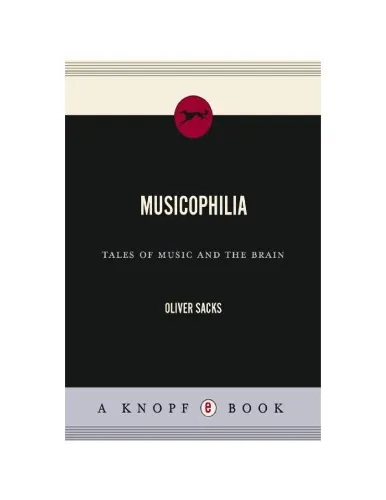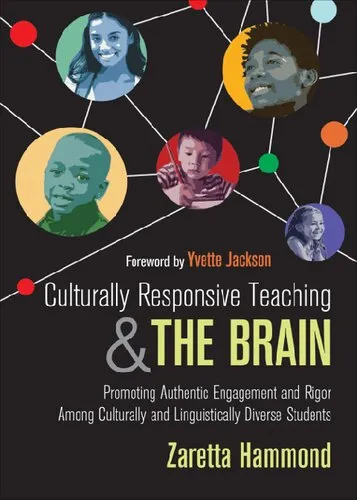Musicophilia: Tales of Music and the Brain
4.6
Reviews from our users

You Can Ask your questions from this book's AI after Login
Each download or ask from book AI costs 2 points. To earn more free points, please visit the Points Guide Page and complete some valuable actions.Related Refrences:
Introduction
Welcome to the compelling world of "Musicophilia: Tales of Music and the Brain," a dazzling exploration of the mysterious bond between music and the human brain. Written by the esteemed neurologist Oliver Sacks, this captivating book delves into the powerful interplay between music and neurological processes, weaving tales that demonstrate music's profound impact on the human condition.
Summary of the Book
In "Musicophilia," Oliver Sacks takes readers on a journey through the intricate landscape of music and its effects on the brain. From the simplest melodies to the complex structures of symphonies, music impacts us in ways that are as varied as they are profound. Sacks shares a collection of case studies where music has played a pivotal role in neurological recovery, therapy, and even transformation. Through these stories, one learns about individuals with extraordinary musical abilities despite neurological impairments, such as musical savants who can play entire symphonies from memory without being able to read musical notation or understand musical theory.
The book is divided into several parts, each addressing different aspects of music's interaction with the brain. Sacks examines phenomena such as musical synesthesia, where hearing music triggers visual experiences, and earworms, the ubiquitous tunes that get stuck in our heads. He explores the benefits of music therapy for those suffering from ailments like Parkinson's disease and Alzheimer's, highlighting how rhythmic patterns can create a powerful therapeutic tool.
Key Takeaways
"Musicophilia" delves deep into understanding not just how music affects the brain, but why it matters. Key takeaways from the book include:
- The universal language of music and its ability to communicate emotions across cultures and personal boundaries.
- The therapeutic potential of music in treating neurological disorders, shedding light on innovative approaches to rehabilitation.
- The brain's remarkable plasticity, highlighted by music's ability to shape and heal neural pathways.
- A comprehensive look at the varying degrees of musical abilities, ranging from musical savants to amusia, a condition where individuals cannot perceive musical tones.
- The historical and cultural importance of music in human evolution and its role in societal bonding.
Famous Quotes from the Book
"Music expresses, indeed, so much that it has often assumed mythical or mystical dimensions and significance."
"To live on a day-to-day basis is insufficient for human beings; we need to transcend, transport, escape; we need meaning, understanding, and explanation."
"This is the paradox of music that despite being so abstract, it seems to connect uniquely to our emotions."
Why This Book Matters
"Musicophilia" matters because it shifts the conversation from music as mere entertainment to music as a fundamental component of human biology and experience. Oliver Sacks presents compelling evidence of music's profound capacity to influence health and well-being. This work illuminates the ways in which musical perception and appreciation are embedded in the human brain, explaining how deeply rooted and essential music is in our lives.
By bridging the gap between art and science, this book deepens our understanding of both the human brain and the essence of music itself. It challenges traditional views, encourages interdisciplinary dialogue, and inspires ongoing research into the therapeutic potentials of music. Oliver Sacks invites readers to appreciate the full extent of music's impact, how it echoes our individual and collective identities, and how it taps into the cognitive and affective core of who we are.
Free Direct Download
You Can Download this book after Login
Accessing books through legal platforms and public libraries not only supports the rights of authors and publishers but also contributes to the sustainability of reading culture. Before downloading, please take a moment to consider these options.
Find this book on other platforms:
WorldCat helps you find books in libraries worldwide.
See ratings, reviews, and discussions on Goodreads.
Find and buy rare or used books on AbeBooks.
1432
بازدید4.6
امتیاز0
نظر98%
رضایتReviews:
4.6
Based on 0 users review
Questions & Answers
Ask questions about this book or help others by answering
No questions yet. Be the first to ask!




![How to Talk So Kids Will Listen & Listen So Kids Will Talk [THIS IS NOT the BOOK its 2 pages e.g. the cover] not sure how to delete](https://s3.refhub.ir/images/thumb/How_to_Talk_So_Kids_Will_Listen___Listen_So_K_13955.webp)








